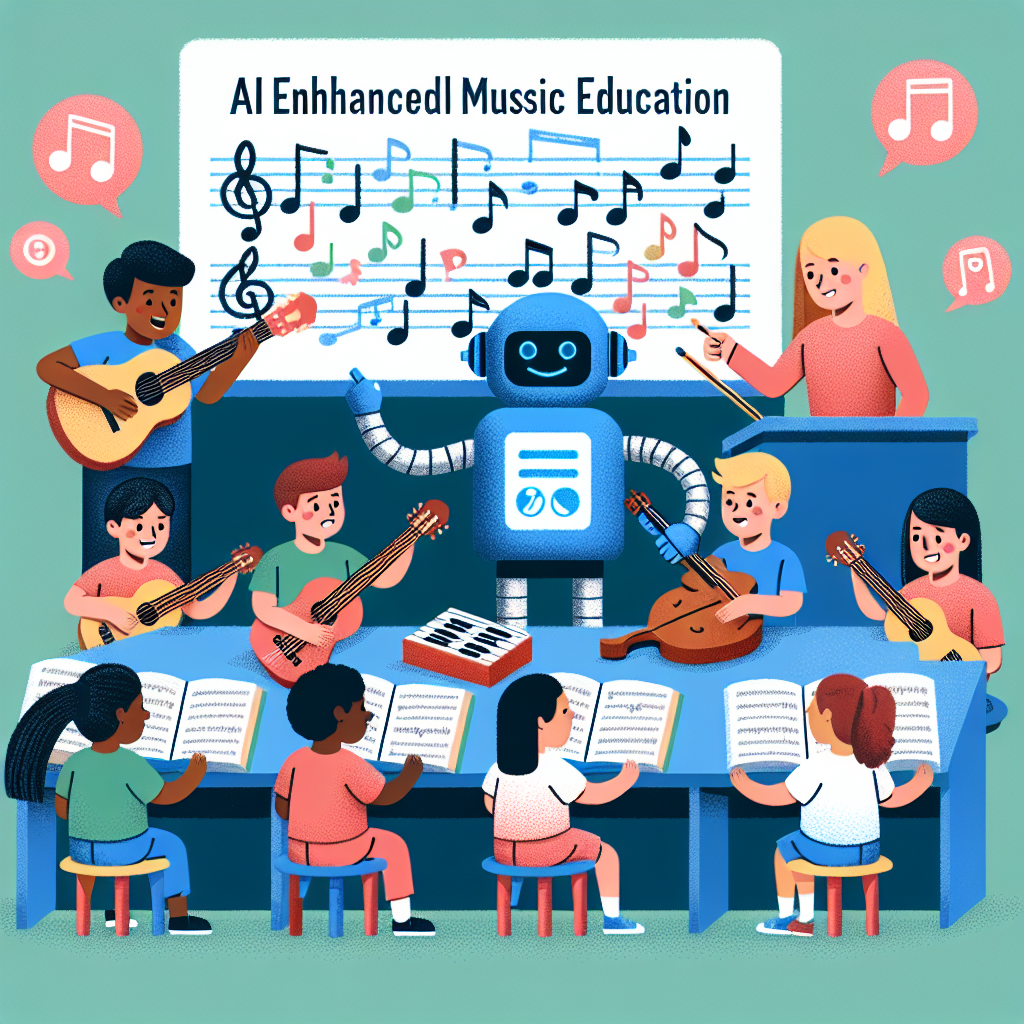AI-Enhanced Music Education: Opportunities and Challenges
Introduction
Music education is an essential component of a well-rounded education, providing students with the opportunity to develop their creativity, critical thinking skills, and emotional intelligence. With the rapid advancements in technology, particularly in the field of artificial intelligence (AI), there is a growing interest in exploring how AI can enhance music education.
AI has the potential to revolutionize music education by providing personalized learning experiences, enabling students to learn at their own pace and in their preferred style. AI-powered tools can analyze students’ performance, provide real-time feedback, and offer customized lesson plans tailored to their individual needs. Additionally, AI can help music educators track student progress more effectively, allowing them to provide targeted support and interventions as needed.
Opportunities
There are several opportunities that AI-enhanced music education can offer:
1. Personalized Learning: AI can analyze students’ strengths and weaknesses, learning preferences, and progress to create personalized lesson plans that cater to their individual needs.
2. Real-Time Feedback: AI-powered tools can provide students with immediate feedback on their performance, helping them identify areas for improvement and track their progress over time.
3. Accessibility: AI can make music education more accessible to a wider range of students, including those with disabilities or limited access to traditional music education resources.
4. Collaboration: AI can facilitate collaboration between students, teachers, and musicians from around the world, enabling them to work together on projects and share their knowledge and expertise.
Challenges
While AI-enhanced music education offers numerous opportunities, there are also several challenges that need to be addressed:
1. Quality of Content: The quality of AI-generated music content may not always meet the standards of professional musicians, leading to concerns about the authenticity and originality of the music produced.
2. Lack of Human Interaction: AI-powered tools may not be able to replicate the emotional connection and personal feedback that students receive from human music educators, potentially impacting their learning experience.
3. Privacy and Data Security: AI systems collect and analyze large amounts of data, raising concerns about privacy and data security, particularly when it comes to storing sensitive information about students.
4. Equity and Inclusion: There is a risk that AI-enhanced music education may widen the gap between students who have access to technology and those who do not, leading to disparities in learning outcomes.
FAQs
1. How can AI help music educators track student progress?
AI can analyze students’ performance data, such as the accuracy of their playing, timing, and expression, to provide insights into their progress and areas for improvement. This information can help music educators tailor their teaching methods and lesson plans to meet the individual needs of each student.
2. Can AI-powered tools replace traditional music education?
While AI can enhance music education by providing personalized learning experiences and real-time feedback, it cannot fully replace the role of human music educators. The emotional connection and personal feedback that students receive from human teachers are essential for their development as musicians.
3. How can AI make music education more accessible?
AI-powered tools can make music education more accessible by providing students with resources and lessons that cater to their individual needs, learning preferences, and abilities. This can help students with disabilities or limited access to traditional music education resources to participate in music learning and performance.
4. What are the privacy concerns associated with AI-enhanced music education?
Privacy concerns related to AI-enhanced music education include the collection and analysis of students’ personal data, such as their performance data, preferences, and progress. It is important for educators and technology developers to ensure that students’ data is handled securely and in compliance with data protection regulations.
Conclusion
AI-enhanced music education presents exciting opportunities for students, educators, and musicians to explore and develop their musical talents in new and innovative ways. By leveraging the power of AI to provide personalized learning experiences, real-time feedback, and collaboration opportunities, we can enhance the quality and accessibility of music education for all. However, it is important to address the challenges of AI-enhanced music education, such as the quality of content, lack of human interaction, privacy concerns, and equity issues, to ensure that all students have equal access to high-quality music education experiences. Ultimately, the successful integration of AI into music education will require a thoughtful and collaborative approach that prioritizes the needs and well-being of students and educators alike.

